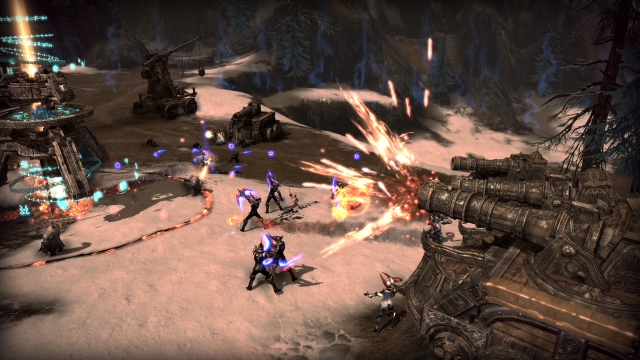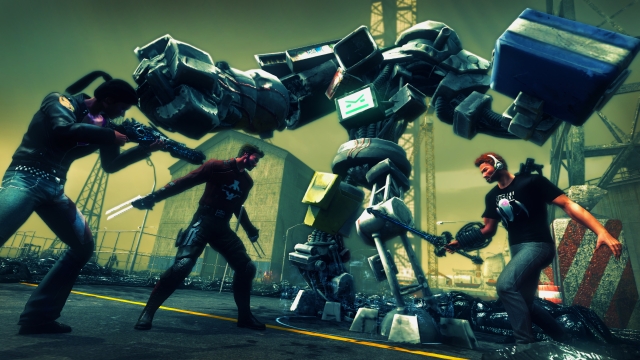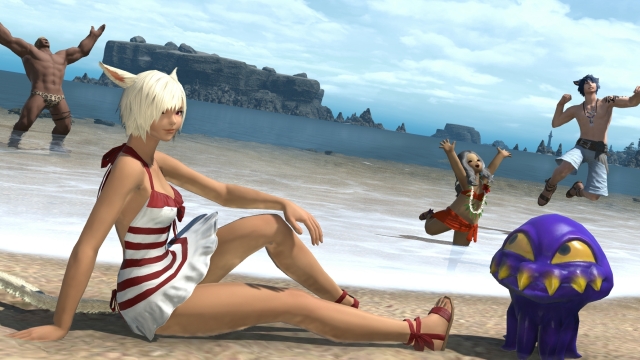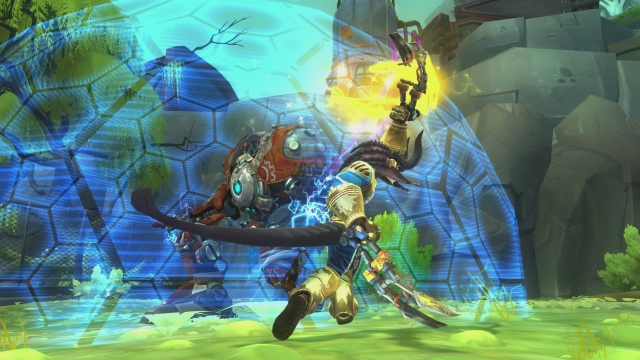Here we are, folks! It’s 2017! If you’re reading this, you made it through a rough year. Now what are you going to do with this one?
All right, that’s a little broad for a column about guilds. Let’s be more specific: What are you going to do guild-wise for this year?
Last year at around this same time, I penned an article on #GuildResolutions, which is still worth reading and hashtagging. But today, I want to talk about looking over the past year and evaluating how well those resolutions worked and how well you can make things work as we head into the choppy waters of 2017. What worked, what didn’t, and how can you tell the difference? For that matter, how can you tell the things that need to be improved over the next year?

Metrics vs. feelings
One of the things that I’ve noticed happens far too often with guilds — sometimes not even over the course of subsequent years — is that they follow a rather distressing cycle. For the purposes of this example, we’ll go with a yearly format, because it looks something like this:
- 2014: Guild forms in World of Warcraft with an eye toward progression
- 2015: Guild refocuses on firmer and more adamant progression
- 2016: Guild does far better with progression content, getting to the position of being one of the better progression groups on the server
- 2017: Guild looks back at doing great over the past year while announcing that it’s disbanding
What the heck happened? It’s a case of confusing metrics with what the group is actually feeling, and that’s going to bite you hard when it comes to resolutions.
See, metrics are nice and trackable. It’s very easy to look back and say “for this raid, we cleared 3/10 bosses on Mythic; next tier, I want us to be clearing 5/10.” That gives a very straightforward thing to track and work on over the next tier, and it’s the sort of thing that you can talk over and just work on. All well and good. By the time the next tier rolls around, you can see whether or not your guild is progressing further or getting stopped at around the same point.
But there is always a cost that goes along with it, and in the cases of these guilds that are doing well right up until they fall apart, the cost is in the character of the guild. As they’re pushing themselves harder and hard, people are getting more and more annoyed and burnt out, until you find yourself hitting a wall due to sheer lack of morale. Yes, the group is driving hard enough to be better; no, it’s not actually a success story, because the ultimate triumph takes everything out of the group.
When looking back over the past year, don’t just evaluate how much the group accomplished in a technical sense. If you held two dozen big events in your guild, twice as many as the year before, ask how many people enjoyed all of those events. If you find that the answer is small, you might need to re-think your strategy rather than just going with “more is better, let’s double up again.”

Understand the reasons behind your goals
One of the things I’ve harped on, time and again, is the need for a guild to have a focus. You need to have something that your guild is meant to accomplish, first and foremost. But as you make your plans for the next year, you want to also understand why that’s your focus, because that’s going to make a pretty huge difference.
Take a look at progression, for example. You might be focused on progression content because you want your guild to be better than anyone else. You might be focused on that because it provides a challenge. You might be focused on it because you just want all of the nifty appearances that go along with it. All of those are entirely valid reasons for the focus, but all of those are going to require entirely different approaches as you start moving through the next year as you take the general morale level into account.
If your guild is primarily focused on progression for the challenge, for example, obviously you need to keep that focus. But if they’re primarily focused on it from a competitive angle, if everyone’s running low on gas, maybe it’s time to shift to another arena. Perhaps it’s time to focus on overall progression rather than speed of progression, or otherwise tweak your roster (or restart recruitment) to prevent burnout.
Naturally, over enough time you’ll have members of your guild with different feelings on the matter. That’s normal. Sharing a focus doesn’t necessarily mean you share your reasons behind that focus. Just understand what that focus means for the majority of the guild and try to shift accordingly. You may well lose some members if you do, but you you’ll provide a guild that’s more in line with the goals of the players if you recognize the reasons behind your targets.

Plan for what you know is coming
In Final Fantasy XIV right now, guilds need to plan for June. They don’t know what’s coming after June, no, but that’s when the second expansion launches, and that means that leveling will need to happen, new jobs must be learned, and new progression will open up. Good planning for the next year thus becomes a matter of figuring out who levels the fastest within the guild, who will be ready to charge up levels with the new jobs, who’s going to be able to do the math for optimal gearing… all of that stuff. You need people to plan around that. Similarly, World of Warcraft guilds need to be planning for the upcoming Nighthold opening and the eventual patch 7.2.
More stuff is going to happen in these games after these events, of course, and specific plans don’t overwrite more general plans. But good planning for the next year is about what you know as much as what you don’t yet know. You may not know how viable Red Mage will be in FFXIV, but you know it’s coming, and you know your guild members will need someone who knows the job. So you need to have someone on that from the launch onward.
Does that mean your overall goal can’t be, say, holding more community events? Not at all. It means planning for both.
Specific plans beat general plans, but both are important to move into the next year. Just planning generally means that when big stuff comes along, you’re ill-suited to deal with it… and in the case of stuff you knew was coming, that’s just plain irresponsible. By contrast, having nothing more than specific plans means that you’re leaving out important plans for what to do when those specific plans aren’t yet happening.
It’s always tricky preparing for the new year, because there will always be surprises. Heck, a lot of those surprises are ones you may not even see coming from the game — you never know when a member needs to quit for family reasons, for example. But with a bit of planning — and an understanding of why you’re planning — you can make sure that you’re as ready to go at this year as you can be.







Published: Jan 5, 2017 07:14 am